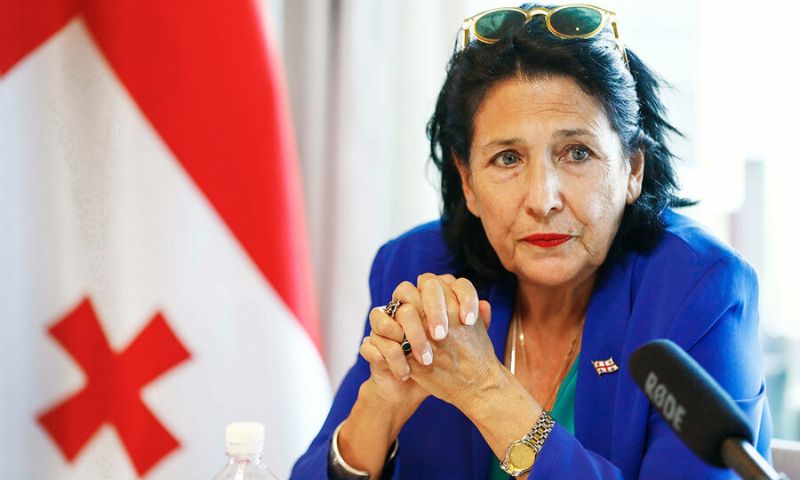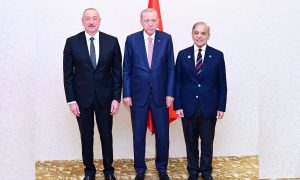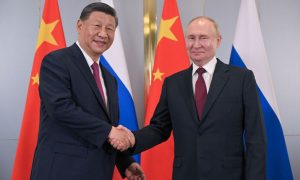TBILISI: Georgian President Salome Zurabishvili on Saturday put a mostly symbolic veto on the “foreign influence” law that sparked unprecedented protests and warnings from Brussels that the measure would undermine Georgia’s European aspirations.
The legislation, passed by lawmakers from the ruling Georgian Dream party earlier in the week, has triggered a wave of protests across the country, with demonstrators expressing concerns that the ex-Soviet republic is veering away from its pro-Western stance and tilting towards Russia.
Addressing the nation in a televised statement, President Zurabishvili condemned the law as being reminiscent of Russian legislation aimed at stifling dissent and infringing upon constitutional principles. Describing the bill as “Russian in its essence,” she emphasized its contradiction with Georgia’s constitution and values.
The protests against the law represent an unprecedented mobilization in Georgia’s recent history, underscoring the population’s strong desire to align with the European Union and NATO while maintaining staunch opposition to Kremlin influence.
Brussels has voiced firm opposition to the legislation, asserting that it undermines Georgia’s aspirations for EU membership, a goal enshrined in the country’s constitution.
Despite Zurabishvili’s veto, the ruling Georgian Dream party holds sufficient parliamentary majority to override her decision. However, Prime Minister Irakli Kobakhidze has indicated a willingness to consider amendments proposed by the president, should she outline them in her veto document.
Nevertheless, tensions between Zurabishvili and Georgian Dream remain palpable, with the president ruling out engaging in what she termed as “false, artificial, misleading negotiations” with the ruling party.
The controversial law mandates that non-governmental organizations (NGOs) and media outlets receiving more than 20 percent of their funding from abroad register as entities “pursuing the interests of a foreign power.” While Georgian Dream asserts that the legislation aims to enhance transparency in NGO funding, critics argue that it poses a threat to freedom of expression and civil society.
























